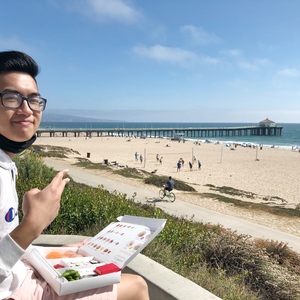Being able to understand and to distinguish different tastes is crucial in the culinary world. You can have every single spice in the world, but if you do not know what to look out for, your food is going to taste disgusting. Additionally, there are many benefits to training your palate: It gives you an understanding on what to look out for so you can elevate your dish, you start to appreciate taste more, and it can save your food from becoming inedible. So, how do we train the palate? Let’s begin by learning a few basic concepts.
Understand the six different tastes
It’s important to know the six different tastes because they can elevate your dish, as well as give you an understanding of what to look out for. Some people say there are five: Salty, sweet, sour, spicy and Umami. Bitterness is the sixth taste, that is ironically commonly forgotten about. Bitter is almost like this sharp, yet slightly pungent taste. For instance, dark chocolate, black coffee, and watercress are foods that are fairly bitter.
My favorite thing to do in order to distinguish these six different tastes is I like to taste spices that have an obvious sense of these six different tastes. For instance, if I want to taste saltiness, I will eat a small amount of salt. I would drink water to flush it down and cleanse my palate. Then, I move onto the next taste which could be either sweet, sour, spicy, umami, or bitter. You do this a certain amount of times, and you can easily distinguish different tastes on certain foods. It sounds weird, but it gives you an understanding of what to look out for when cooking or eating.
Taste Your Food While Cooking
Once you start recognizing the six different tastes, you apply that concept into cooking. This is a key component when cooking, tasting the food. I cannot stress this enough, tasting your food while cooking is a must. You can find a recipe online somewhere and it has all the measurements ready. I would not rely on that because the recipe could be too salty, too spicy, too sweet, etc. Instead, taste as you go. When cooking, start adding a little bit of salt or whatever seasoning you want to use instead of putting a bunch of seasoning in. Why? Because once you add that seasoning, it is hard to take out. If the food you are cooking is under-seasoned, then add a little bit more. To practice that, take a recipe like soup and start seasoning as well as tasting as you go. Keep in mind, every individuals palate is different. Some people tolerate more spice, saltiness, sweetness, etc. If you know everyone will like it, then it is good. If people want more salt, pepper, sugar, etc., then leave some on the dinner table to add.
Take The Time to Enjoy Your Food
So many people eat just to eat. I was guilty of it too, and then I realized that I was not getting to know my food. Why not take the time to enjoy the food rather than eating to be full? Immerse yourself with your food and chew not only slowly, but chewing it multiple times. When you chew multiple times, you start to analyze what you are eating as well as pinpointing certain things that you normally would not notice when eating to be full. Close your eyes, get to know the flavors, enjoy the flavors, and stop eating like you would with a food challenge.
Avoid Damaging Your Palate
It would be horrible if anybody suddenly lost their ability to taste. Would it not suck if you were eating the most delicious dessert in the world, but you cannot taste anything because your palate is damaged? I got news for you, there are ways to prevent your palate from being dull.
Try not to smoke. According to BMC Ear, Nose and Throat Disorders, they found, “Smoking is an important factor which can lead to decreased taste sensitivity.” The science behind it indicates that your taste buds would be flatter than that of a non-smoker.
To also not flatten your taste buds, try to reduce drinking hot beverages. Yes, they heal over time, however if you keep burning mouth, overtime your taste buds will scrap off. Additionally, coffee will actually change your sense of taste.
So if you want to save your taste buds, reduce drinking too much coffee. You can still drink it, but try to dial it back if you want to improve your palate.
Explore
If you really want to enhance your palate, you are going to have to get out of your comfort zone. Try foods that you normally would not eat. If you normally eat Italian food, why not try Mediterranean food? Both cuisines will have their own unique blends of flavor, so be sure to expand your horizons on food. Once you explore different kinds of foods, you will notice that you will fall in love with flavors that you did not even know about. Not to mention, you will have more options available to eat wherever you go.
Blindfold Test
Want to have fun with food? Blindfold yourself and with others to make training your palate a game. In the iconic show, Hell’s Kitchen, Gordon Ramsay tests his chefs by doing a taste test with various seasonings and foods. By doing this, you understand and pinpoint the unique flavors of certain foods, beverages, or even seasonings.
References
Fjaeldstad, A.W.; Fernandes, H.M. Chemosensory Sensitivity after Coffee Consumption Is Not Static: Short-Term Effects on Gustatory and Olfactory Sensitivity. Foods 2020, 9, 493. https://doi.org/10.3390/foods9040493
Pavlos, P., Vasilios, N., Antonia, A. et al. Evaluation of young smokers and non-smokers with Electrogustometry and Contact Endoscopy. BMC Ear Nose Throat Disord 9, 9 (2009). https://doi.org/10.1186/1472-6815-9-9


